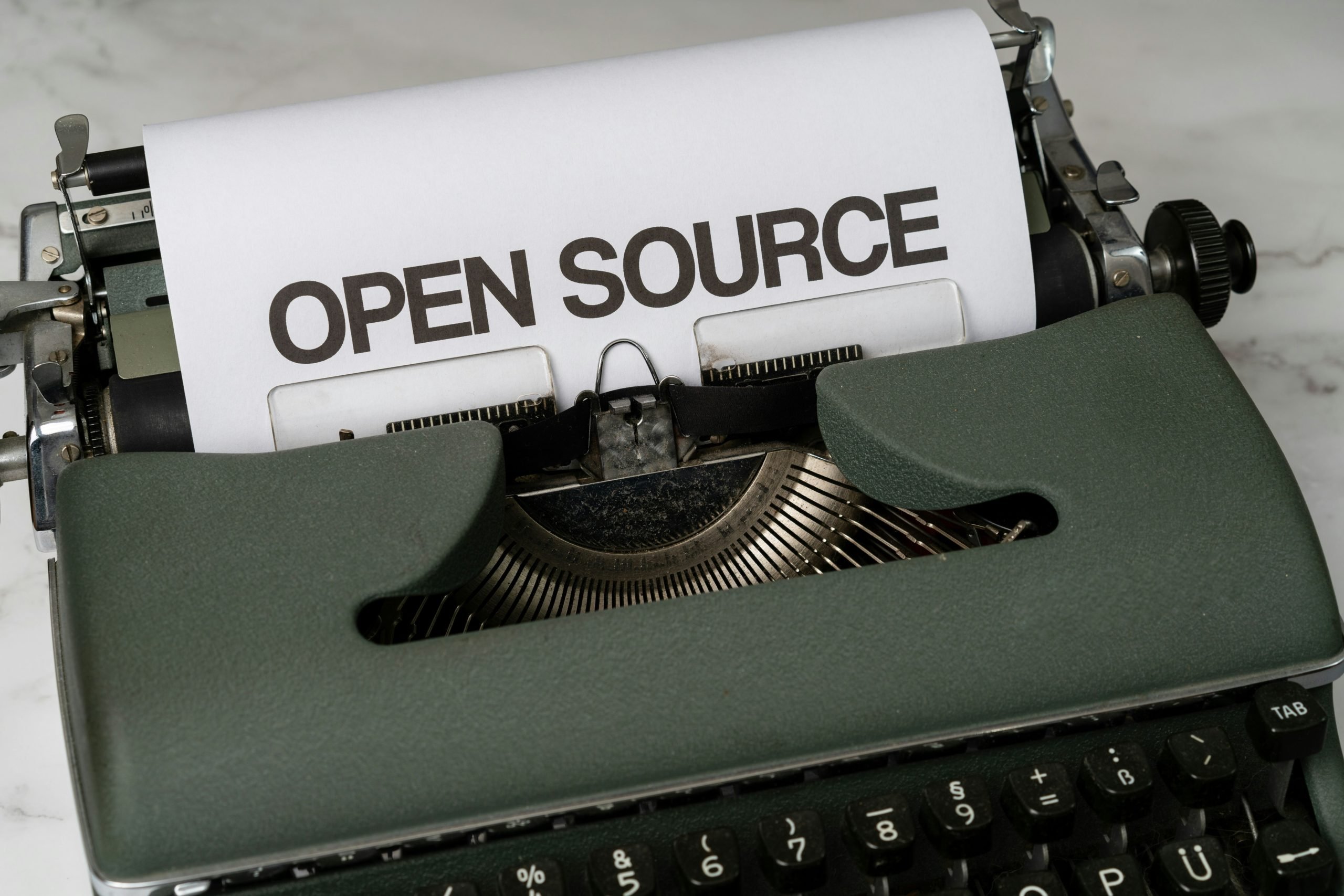This year has been exceptional for us because we took the road to deliver the Infobip’s Shift experience across North America, traveling to 18 cities in 2 countries and 9 states looking to grow our US community and start some tech conversations.
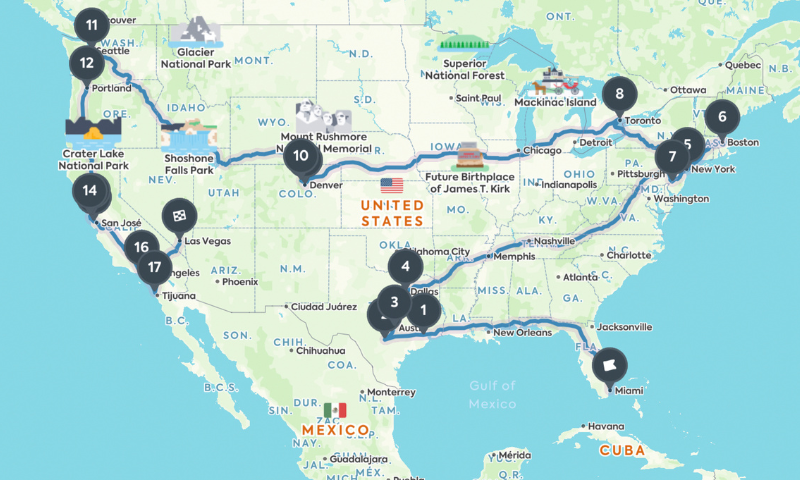
In case you haven’t already taken part in Infobip’s Shift, it’s a conference for developers by developers that’s been taking place on the beautiful Croatian coast for the last 10 years. But we knew that transatlantic travel was not in the cards for everyone, so we flipped the script and brought a bit of Shift to the States.
The process required careful planning and consideration of various factors, including logistics, speakers, marketing, and more. Nonetheless, we have succeeded in creating a community of over 1300 software developers and tech professionals.
Want to know how to organize a meetup where a Q&A session will last almost an hour, like the one we did in New York? Or how to organize a series of meetups from thousand miles away?
Our Nikola Radišić, from the Shift team explains it all.
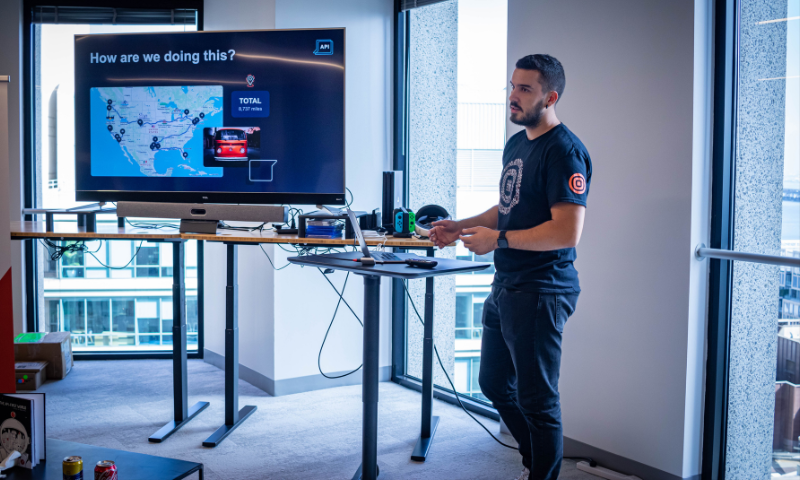
Picking the right city and the right time
“Right time, right place” is advice that pretty much sticks to everything, meetup planning included.
We planned our meetups around existing events and conferences, for example, API Days in San Jose, TechCrunch Disrupt, SXSW in Austin, Collision in Toronto, re:Invent in Las Vegas…Organizers and other event attendees are sympathetic to those supporting their event. There are many upsides to organizing a meetup during or close to another event:
It is much easier to gather existing community members at an event than to gather people and convince them to join a newly-formed community.
Also, be wary of huge events like TechCrunch Disrupt and re:Invent, there is a real danger that you will drown in the sea of meetups. We had over 60 signups, but only less than 30 people showed up, so beware of the syndrome we call “meetup ghosting.” People tend to sign up for many meetups and then choose which one they will attend. Organizing a meetup becomes hard because you never know how many people will show up.
That’s why it’s safer to go for smaller conferences that attract enough people but can use side events – we like events like API World. Also, don’t overlook smaller cities like San Jose with fewer events and cities with great meetup communities because they can help you with the promotion.
Picking a venue is an art of its own
Now it’s time to pick a venue! We always strive to meet at a cocktail bar with at least an isolated section or a coworking space. Other options are cafes, community centers, and local tech companies. We usually want to ensure that our location can accommodate 50 to 100 people. Also, keep in mind the equipment you’re going to need; Do you need a tv, projector, sound, pop-up projector screen, roll-up banners, a space to display them, necessary cables and adapters, and of course the internet?
Always talk to your hosts beforehand and ensure they will actually let you use the TV and turn down the music. Unfortunately, there were instances when we were promised a quieter place, but we have yet to get it.
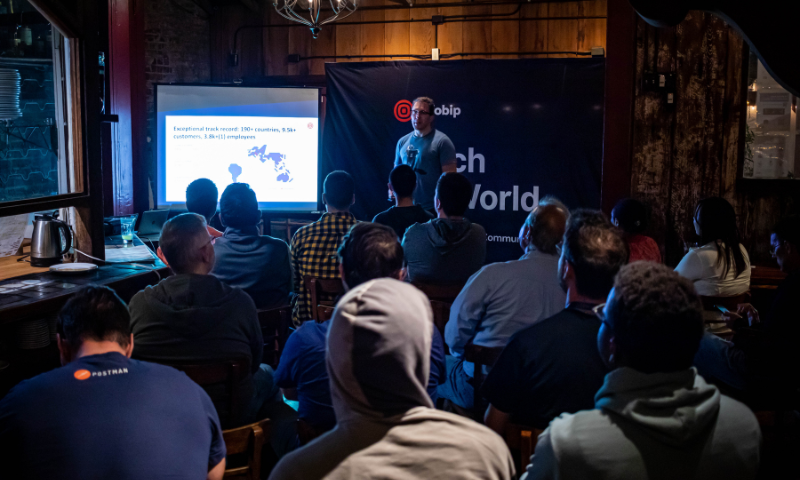
Finding the right speakers
Speakers and topics can make or break an event, and therefore, you should always strive for speakers with interesting topics. Regarding the number of speakers, we usually go for three or more, but of course, don’t overdo it.
Then, how to find the right speakers for you? Check with the company’s DevRel department or person, as it is their job to speak at events. After that, if you are still missing speakers, reach out to the engineering department.
Try to find out what speakers are coming to the conference you’re supporting. You already know they are in town, so you just need to ping them up-front and ask them to attend as a co-host. Don’t shy away from contacting speakers directly over LinkedIn or other social media.
Also, contact your partner companies (like we did with Microsoft & Postman), especially if they are local, to provide a list of potential speakers.
Promotion, promotion, promotion
You’re ready to spread the word! Set up an event page on services like MeetUp, Eventbrite, and Lu.Ma. While it’s good thinking to spread the word on multiple services, redirect the actual signups to just one of them. This way, it is easier to track analytics and do email marketing. Here is an example of how our Linkedin and Meetup posts led to Lu.Ma page.
In addition to your organization’s social media profiles, use your personal social media to promote the event with your network and invite your team members and especially speakers to do the same. Then post about the event, including a link to the registration page, in various Universities / Dev Organizations / Discords / MeetUp Groups / Reddits & anywhere where it might be relevant.
Remember to send at least two reminders in the weeks and days leading up to your meetup, reminding people to RSVP. Also, you can always reach out to other related meetups (ex: DevOps, Cloud, API) in the area and invite them to your event to help grow your community.

What to do on the day of the event?
Know how they say the devil is the details? Well, here are some quick and important notes you should remember:
- Send reminders to your guests before 12:00 PM local time.
- Print and hang signs directing attendees to the room
- Test the at least 6 hours before AV is in the room to ensure everything is in working order before guests begin to arrive
- We recommend recording and photographing meetups
- Set up food, drinks, swag, and any other materials you have for the event
- Welcome your guests, share important updates with the group, review the agenda, thank your host, and introduce your speakers
Nikola concludes it with one more point:
Keep it frequent – every next meetup will have more and more people coming in. Just remember, if all else fails, you can always bribe people with free pizza and beer!
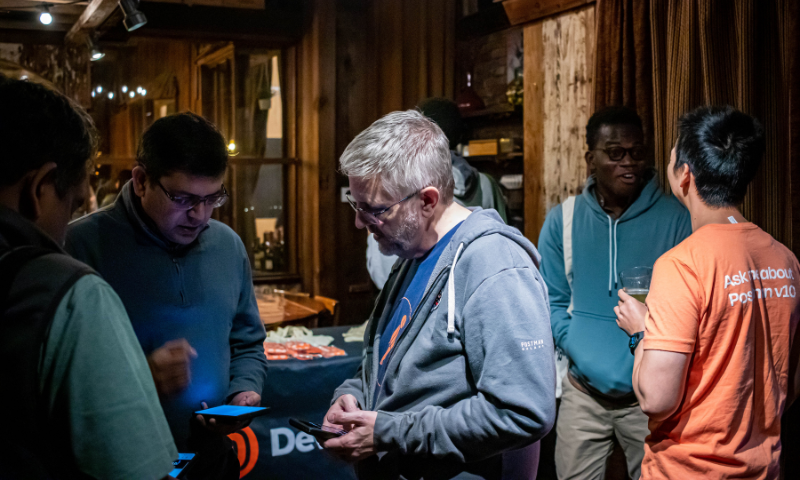
So what’s next for us?
One thing we know for sure – we need to expand the user base to scale these events and make them self-sufficient, explains Tomislav Buljubašić, Community Events Coordinator. This means providing support and guidance to community members who can organize and host their meetups.
We ourselves will focus on five cities: Miami, New York, San Jose, Austin, and Philadelphia. And now, the thing we are excited about…
We have made an official Infobip RV that will follow us to every city! If you see our RV, you know that Shift on the road is just nearby.
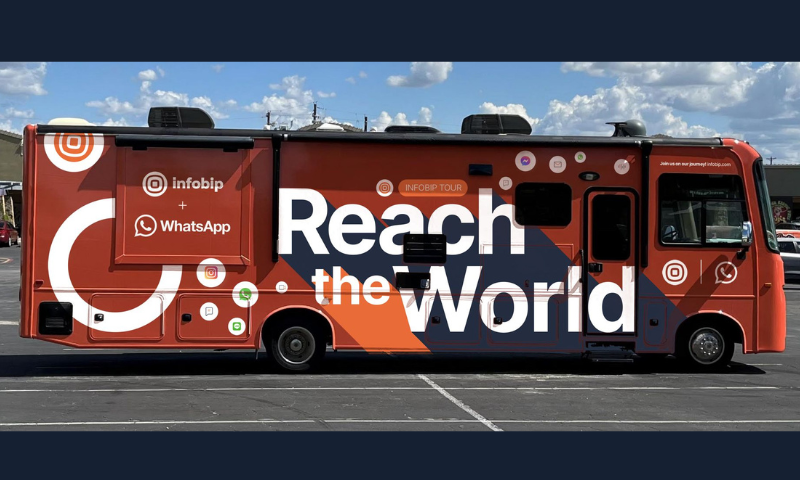
What would you, our community, like to see next? Join our meetup group and let us know. See you soon!
